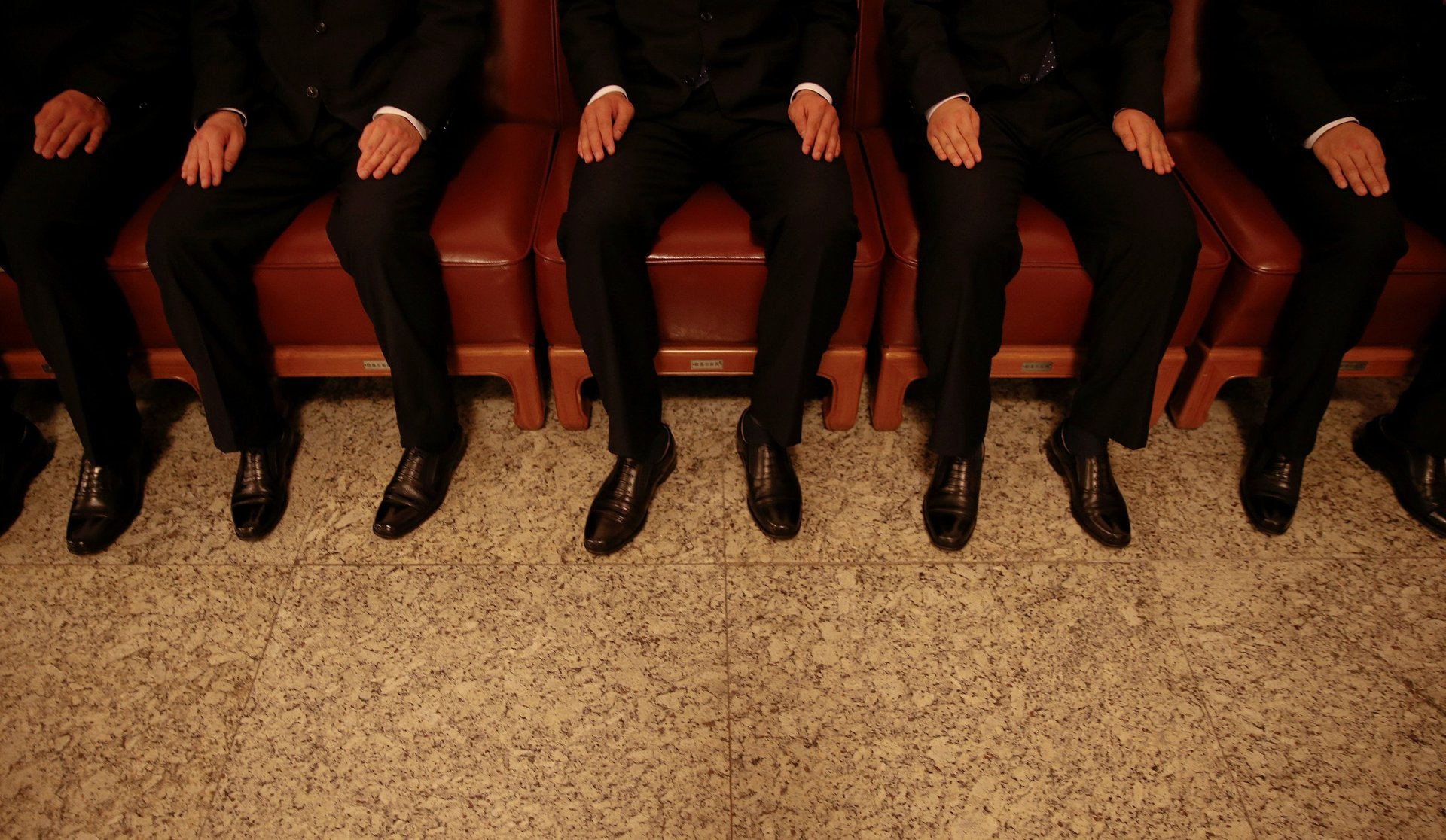The coronavirus looks set to nix China’s biggest annual political gathering
In the latest sign of just how abnormal life is in China right now, the country is set to cancel part or all of its annual political shindig—known as the Two Sessions—amid its ongoing coronavirus outbreak.


In the latest sign of just how abnormal life is in China right now, the country is set to cancel part or all of its annual political shindig—known as the Two Sessions—amid its ongoing coronavirus outbreak.
The country’s most important yearly political meeting sees thousands of delegates to the National People’s Congress, the country’s legislature, as well as to the Chinese People’s Political Consultative Conference (CPPCC), the country’s top political consultative body, gather in the capital for 10 days in early March. Given that the body hasn’t ever rejected proposals from the topmost levels of the ruling Communist Party, it’s a carefully scripted political performance that is nevertheless highly anticipated and copiously covered.
At it, the country unveils its economic target for GDP growth in the current year, goes over a road map for the year ahead, and closes with a news conference at which premier Li Keqiang takes vetted questions from Chinese and foreign journalists. Given the blow China’s economy is set to take from the coronavirus in this quarter, Li must be relieved he doesn’t have to put out a number for GDP growth just yet.
Multiple Chinese state-run media reported today (Feb. 17) that the Standing Committee of the NPC will next Monday (Feb. 24) discuss a resolution to postpone this year’s legislative meeting, scheduled for March 5. The reports signal a decision to postpone has effectively been made, which would mark the first delay of the gathering since it adopted the early March schedule in 1995. News agency Xinhua (link in Chinese) cited a spokesperson from the committee as saying the main consideration for the delay was due to the fact than many of the delegates are currently on the frontlines of battling the virus.
It’s unclear when the gathering will take place. The South China Morning Post said the CPPCC session set for March 3 would also be delayed.
The decision is likely to have had both public health and political considerations. There have been numerous global reports of people catching the virus at conferences and numerous high-profile events have been canceled globally. At the same time, the reports of the postponement come amid public anger over the perception Chinese officials in the worst-hit province—and potentially higher up—were slow to warn the public of the dangers of a virus that has infected more than 70,500 people in China and caused 1,770 deaths. A speech released over the weekend showed Chinese leader Xi Jinping referring to recommendations he made on dealing with the virus on Jan. 7, weeks before his first public remarks on it.
The fact that, Wuhan, the city at the epicenter of the outbreak, went ahead with its own Two Sessions meeting from Jan. 6-10, has also been widely commented on as a misstep on Chinese social media. Weeks later, cities elsewhere in China reported their first cases of the virus. With the virus not yet contained, allowing the meeting to go forward would cement the idea that politics is again being put ahead of public safety.